#succinct
Text
Ultimate Word Tournament!
somnambulist (English)
[sɒmˈnæmbjʊlɪst]
a person who walks around, eats, or performs other motor acts while asleep; a sleepwalker
succinct (English)
[sə(k)ˈsɪŋkt]
(especially of something written or spoken) briefly and clearly expressed.
58 notes
·
View notes
Text
My 6 word memoir-
"I always wanted to be someone." -GramaRobin
16 notes
·
View notes
Text
“Ow,” I complained. I keep my complaints succinct.
—Jim Butcher/Gravel Peril
1 note
·
View note
Text
"with every single time you have been infuriatingly stubborn and impossibly beautiful all at once"
Vs
"your eyes are incredible, Lucy, I die when you blink"
#succinct#i die when you blink#i want to bite you#i want to squeeze your head like a lemon#we dont have time for lots of frilly words we are feral#what is it about the hating game that is just so superior#I'm reading stuff
0 notes
Text
far too many people do NOT have a grasp on what the word ‘frankly’ implies. i’ll hear a ‘frankly’ and think ‘oh thank goodness, they’re finally going to get to the point.’ and then they continue on for a full monologue.
0 notes
Quote
Author’s note: A tiny poem! I certainly need to do more tiny poems with these prompts because in tiny poems we need succinctness, something I still need to work on.
#TinyPoems
0 notes
Text
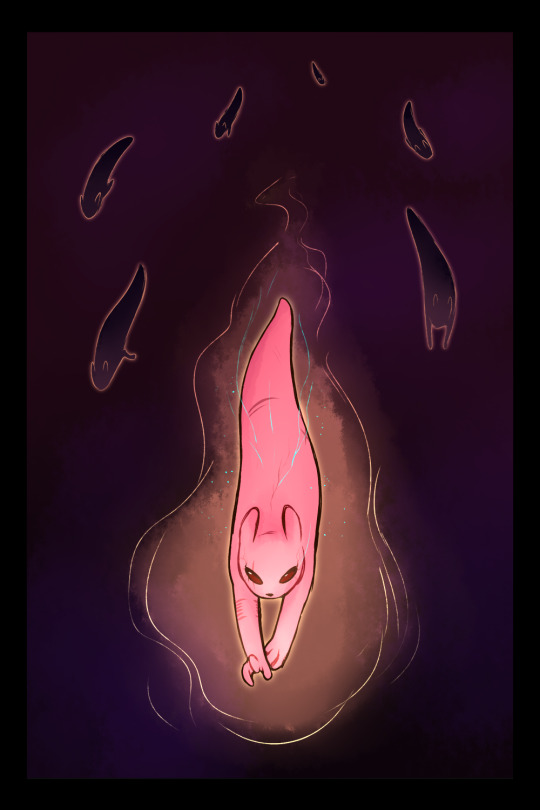

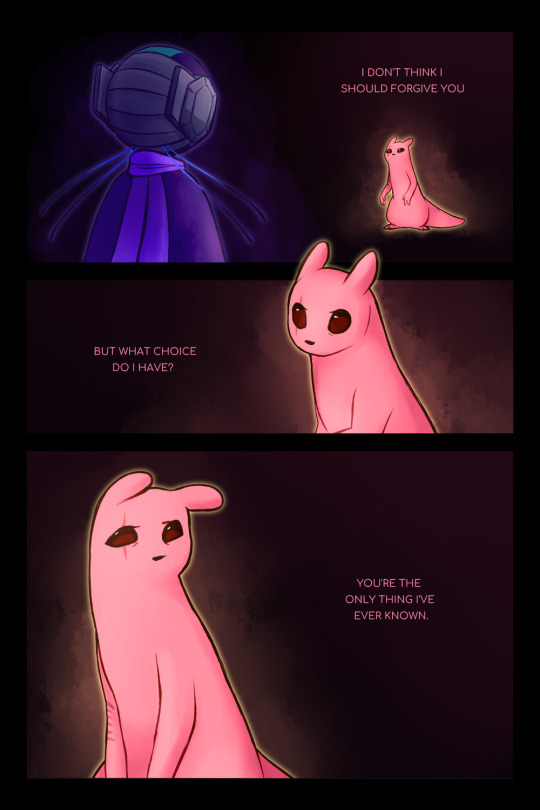
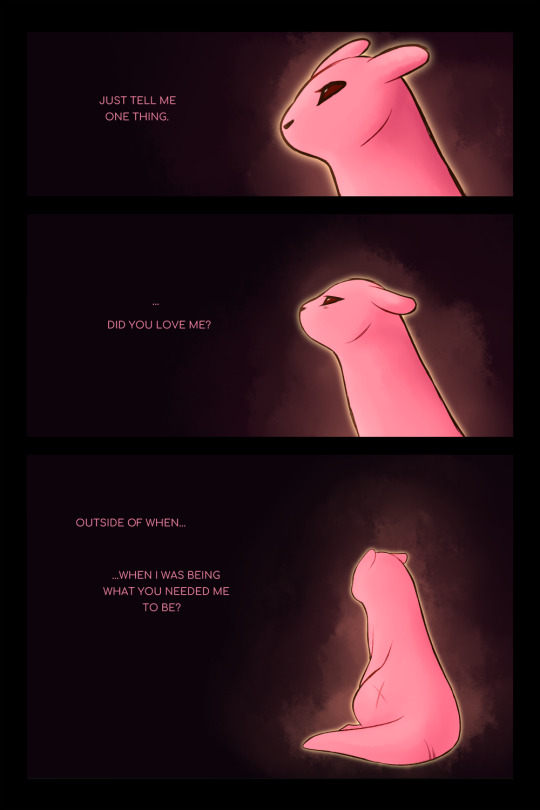
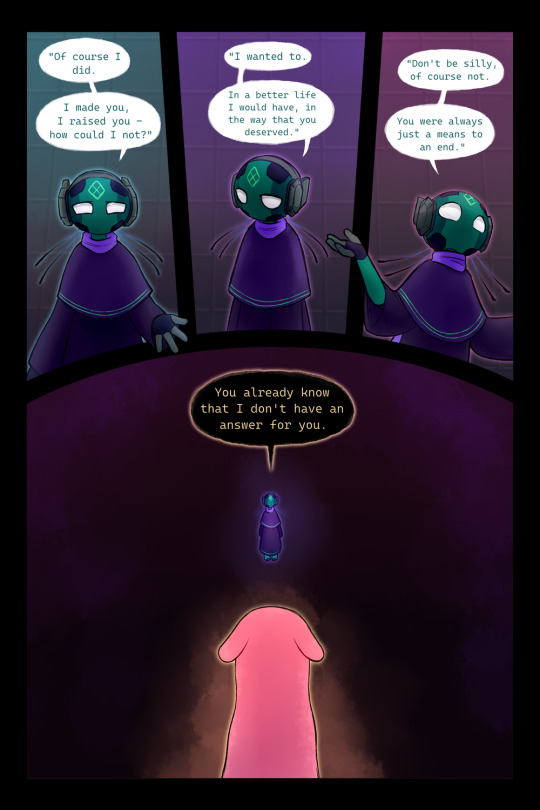



#in the game files the last image of hunter's ascension ending - the one with nsh - is named “embrace”#as a side note#i typically as i like to interpret slugcats as...#intelligent of course as they can draw and sign in downpour lore...#but in a different way from humans. in a different way from iterators.#that's just how i like to interpret them though - if you like to interpret slugcats in a more anthropomorphized/humanized fashion#i'm glad for you and i'm glad you're having fun too :)#anyways i wrote this comic the way i did because i felt like it was the best and most succinct way#to get the message i was trying to express across#so hunter's thoughts are pretty straightforwardly written despite the more complex concepts behind them#i mean they are also made and raised by an iterator so that could come into play#maybe i could have thought of a different way but eh i already drew the comic#rain world#rw hunter#no significant harassment#flickerdoodles#comic#long post#rw spoilers#art
2K notes
·
View notes
Text
concise vs. succinct
These words both refer to brevity in statements or pieces of writing. They are both mainly used approvingly: things described as concise or succinct are also described as up-to-date, in-depth, clear, precise, and informative.
[Compare with the use of brusque, abrupt, curt, and terse: (All these words apply to remarks that are noticeably short and unadorned, or to the people who make them; all usually imply criticism, as shown by the other adjectives with which they typically occur: overbearing, arrogant, impetuous, rude, and sharp.)]
■ Concise expresses approval of a statement that conveys information briefly. It suggests that by keeping the words used to a minimum, the speaker or writer has achieved clarity as well as brevity (the instructions were clear and concise). Concise can, however, be more neutral in tone (the church committee may need a concise report every three or six months). It is used mainly of written documents, such as reports, instructions, and summaries.
■ Succinct language is pithy, made more forceful by its brevity, and is more often praiseworthy (John McLeish considered this admirably succinct report). Of the two words, succinct is the one more often used of speech or of shorter pieces of writing (I told him my story in sharp, succinct phrases ; each page is introduced by an imaginative, succinct heading).
0 notes
Text
🌟 Succinct, yet says so much.
0 notes
Text
Them: Describe Star Trek: The Original Series in three images.
Me:



#star trek#star trek tos#jim kirk#spock#leonard mccoy#captain kirk#bones mccoy#triumvirate#mcspirk#a piece of the action#i think this is a succinct summary of tos
4K notes
·
View notes
Text
That moment, when ***I*** am in a "Gender & Media" course, and we are nearing the end class and the instructor says.
"Okay, I'm gonna try and go fast, I know we're all tired, we've only got one thing left for today:
Fandom"
LMAO soz y'all. There is a ZERO PERCENT CHANCE of us leaving early.
LET ME TALK ABOUT FANDOM PSYCHOLOGY AND HISTORY OF FANDOM AND FANDOM CULTURE
in class.
#Taupe has a Life#LMAO#(I do want to clarify that I am very aware class is shared time. I always absolutely do my best to keep my points relevant and succinct.)#(I am by no means trying to take over or like. Forcing people to listen to me give a lecture.)#(This was entirely a situation where like. I know the vibe of the class.)#(I knew there would be several points where would I knew additional information that could be helpful and relevant to the class discussion.)#I WAS ALSO WATCHING THE TIME.#But#That was fun.#Fandom Life
215 notes
·
View notes
Text
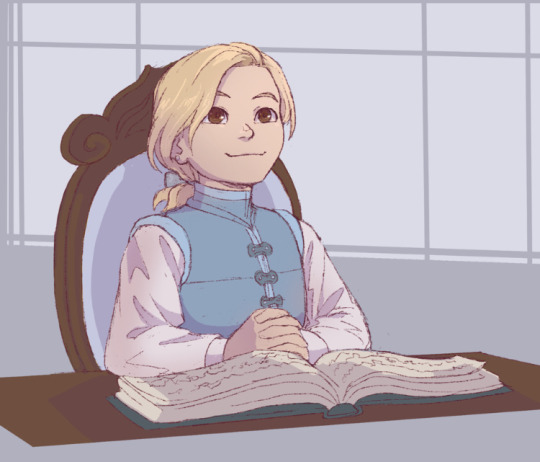
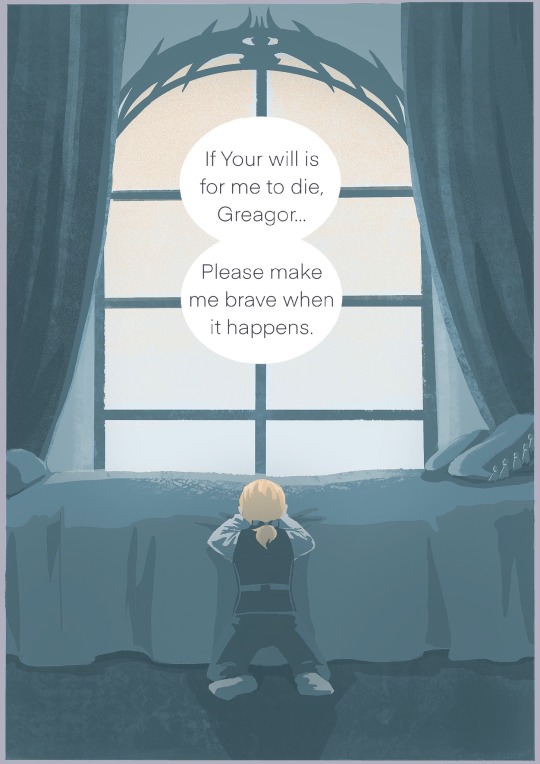
Obsessed with baby Dion in Blossoms Waiting to Rise by @asamis-jodhpurs on ao3
Highly recommend if you want your heart warmed and shattered.
#i have too many things to say about it to fit in a succinct caption. just check it out it’s great.#final fantasy xvi#dion lesage#ffxvi#ffxvi spoilers#i guess?#my doodles#read my girlfriend’s fan fiction boy
408 notes
·
View notes
Text
kia ora! i would like to suggest the coining of a term that would hopefully help a large demographic of mostly-forgotten-about māori to connect with each other and share our experiences to feel less alone, congregate around a concept regardless of country of origin and upbringing, and organise as activists.
i politely ask as many people to spread this as possible to help indigenous people organise with each other and to get the largest amount of interactions possible.
anyway, with all that being said,
i would like to coin the term "ngāti rangiātea" for māori who do not know their iwi to use.
this is based on the well known whakataukī/proverb, "i will never be lost, for i am a seed which was sown from rangiātea." i chose this whakataukī due to the spiritual significance of rangiātea as a place in māori culture, as well as to emphasise that no matter how it feels, we are not lost, we can find ourselves in each other, we can experience strength and self-realisation, and that we will exist with mana and without whakamā as rightful tangata whenua.
i've put my reasoning, personal experiences shaping my viewpoints on the matter, and various statistics under the cut to make this post reblog-friendly and i would suggest fellow māori read it regardless of whether or not they know their iwi. i also ask for the opinions of other māori, ESPECIALLY AND SPECIFICALLY other māori who do not know their iwi. in fact, i politely ask māori to share this with their whānau and people in general to share this with māori they know, especially any they know who do not know their iwi. a wide reach is what i am going for to get the largest amount of voices, critiques, and opinions on the topic and to avoid this from just becoming a very small thing that stays in an online echo-chamber.
to begin, the 2018 aotearoan census shows that, of the 775,836 people identifying as māori in aotearoa, roughly 17% are unable to identify their iwi in the census. this has gone up by 1% since 2006, showing that we are a considerably stable percentage of people. along with this, there are more than 170,000 māori living in australia and, while there are no solid statistics, there are an estimated 8,000 māori living in the UK, 3,500 in the US, 2,500 in canada, and 8,000 in other countries where there's no option for māori or any polynesians on the census.
this number adds up to 967,816 total māori and while there's no census in these countries asking for your iwi, i would go as far as to assume that there's a larger number of diaspora māori who are no longer able to identify their iwi than there are in aotearoa. of course, this is just speculation based on my lived experiences and conversations with other diaspora māori, however even assuming that it's the exact same amount globally, 17%, this is roughly 164,532 māori worldwide who do not know their iwi. nearly one in five māori do not know their iwi.
regardless of the specific statistics, the hard fact here is that there is a large percentage of māori who are unsure of their iwi for whatever reason. it's extremely easy to feel unsure of yourself, lost, disconnected, and uncomfortable speaking on issues regarding te ao māori when you're unsure of your iwi (or your hapū, whānau, waka, or anything else, but there is heavy emphasis on the iwi) and it's very easy for whakamā to take hold, especially when many māori who can recite their whakapapa aren't very polite or understanding about your situation to say the least.
and there are a lot of those people.
unfortunately, i've spoken to many māori who are of the opinion that not knowing your iwi due to colonialism, assimilation, forced disconnection, etc. means that you should not, cannot, call yourself māori. this is a disgusting viewpoint to have and in my opinion it spits on the fundamental concepts of māori culture and worldviews. thankfully this is a small yet vocal group of people, but even so, they add to the collective experience that makes it extremely difficult to navigate a world while full of whakamā and internalised racism. it can feel like there's no space for you, no term you can use, nobody you can relate to, no mana you can claim, nothing. when you cannot recite your whakapapa, it can feel like there's a part of you that's fundamentally missing.
as well as this, even when people mean well, when you are in this situation, you're usually told to just do some genealogy work, do some research, ask your family what they know. sometimes, these steps are simply not possible. other times, we've already done everything suggested over and over and over again. we're generally told "oh, that sucks, but one day you'll find out, keep looking!" in response to our lack of iwi. sure, they mean well, but i have never once been told anything along the lines of "that's okay, some things are lost to time through no fault of your own. don't beat yourself up over something your whānau had to hide to survive, what you do now to uphold your family's mana, what you do know about your whānau, and who you ultimately become is more important than what you no longer know."
and why? why is it seen as shameful to say matter-of-factly that i don't know my iwi? i'm not looking for comfort, i'm not looking to be told that, aww, there there, i'll find it eventually. i'm stating a fact. i do not need pity, i need my mana and voice to be respected.
this concept is what i want to emphasise by coining ngāti rangiātea. some things are lost to time, but we aren't. our loss of knowledge does not mean that we are unworthy of being māori, that we are unworthy of basic human respect. it does not mean that we have lost everything that our whānau knows. it is a scar, a reminder of what colonisation took from us, yes, but we cannot allow it to continue to be an open bleeding wound. we will not be lost to time and we should not bow our heads and act like we do not exist, that we're inconvenient, that we damage the "image" that māori have. in fact, we are an important aspect of māori culture and ignoring our existence does harm to everybody.
and of course we can't speak on some topics regarding te ao māori. this seems to be a topic that comes up frequently as a strawman. yes, there are some topics that would be irresponsible to speak on when we have no experience with them. this doesn't mean we can't speak on anything. having a collective identity, an "iwi" to congregate around even just politically, would help us speak on topics that we are more qualified to speak on than māori with knowledge of their iwi (yes, those topics exist, shockingly.)
we will never be lost, for we are a seed sown in rangiātea.
by identifying as ngāti rangiātea, i wish to emphasise that it's important to accept that sometimes, someone just won't be able to find every piece of information. loss of family knowledge is literally one of the primary goals of forced assimilation! we all went through it as colonised peoples, why must we continue to attach shame to those of us who were forced to obfuscate our history to keep our children alive? it's not a personal flaw, it's not a dirty secret, it's a fact of life that must not continue to be kept quiet out of shame, and the sooner we can focus on healing this subsection of our community, the stronger māori as a whole will become.
so, this is why i'd like to coin a term for māori who are unsure of their iwi. this is what i intend to achieve by giving us a name, our own "iwi" to congregate around, to identify ourselves as. instead of hanging my head and saying "i'm not sure what my iwi is, i'm sorry", instead of feeling inclined to beg like a dog to be treated with respect, i would like to look people in the eye and tell them that i am ngāti rangiātea. i would like this label to be synonymous with strength and not shame, that i refuse to let my whakamā swallow me, that i am just as worthy of calling myself māori as anyone else, that there are many others in my iwi (or lack thereof). i would like other people to have that as well and i would like those like me to feel less lost when all they've been told is "well, you'll learn your iwi eventually!" as if that's going to help someone feel better if they can't find their iwi.
and even if a person finds their iwi eventually, it's absolutely disgraceful that people are treated that they're not allowed to access many basic parts of te ao māori until they discover something they are not even 100% destined to find. i think that this view contributes to a lot of people who eventually find their iwi becoming unnecessarily arrogant towards those who truly cannot find this information, that they're just not putting enough effort in. if a person finds their iwi after identifying as ngāti rangiātea, they are fully welcome to continue to identify as this political label along with the iwi they now know they belong to as i wish for it to be a term that describes your experiences, your upbringing, and your community. you don't suddenly lose your whānau or your lived experience when you discover your whakapapa.
finally, this hopefully goes without saying, but ngāti rangiātea is not meant to function as a real existing iwi does. the term will hopefully be used as a way to identify yourself and other people and organise but i don't expect nor do i want this to be treated like a coordinated iwi. i expect and hope for this to be a decentralised way of identifying and experiencing community to make it easier to organise as a people. think of this the way the terms ngāti kangaru, ngāti rānara, ngāti tūmatauenga etc. are used.
-----
so, the tl;dr is that i feel like coining a name for a phenomenon that nearly one in five of all māori experience in quiet shame, to make it easier for us to congregate and find each other, speak on our experiences, organise as activists, feel less lost, and ultimately give us the ability to regain our mana as a community with shared goals and experiences. i have spoken to many māori who feel this way and my suggestion for this term is ngāti rangiātea, to show homage to the well known whakataukī, "i will never be lost, for i am a seed sown from rangiātea", to give us a community to work with, and to give us an "iwi" to list when asked instead of fumbling for words and feeling whakamā.
i would like to take the emphasis off of constantly looking to the future for what you may or may not even find with this identity. we are not broken, we are not lost, for we are seeds sown in ngāti rangiātea.
tēnā koutou, tēnā koutou, tēnā tatou katoa, and if you got this far, thank you for reading.
#maori#māori#pasifika#indigenous#indigenous issues#polynesia#aotearoa#aotearoa new zealand#new zealand#tangata whenua#new zealand politics#politics#i was considering calling it smth along the lines of ngāti whāngai to represent that we would be whānau from different paths and family#but ngāti rangiātea felt more succinct and meaningful. particularly with how it's very easy to feel lost when you're unsure of your iwi#please boost this even if you're not māori as i'd like as many people to see as possible <3#anyway i'm quite nervous and i hope this doesn't come across like i'm trying to be any kind of authority haha#i just feel like this is an extremely important topic that affects many people but is rarely spoken about for various reasons#ngāti rangiātea
363 notes
·
View notes
Text
“整个《莲花楼》大家只是在一个悬疑探案的,这样一个故事情节的大的框架里面,但更多地写的就是这些角色身上的爱恨情仇。我觉得这些是更重要的一点。因为现在的现实世界,没有更多能够感受得到武侠里面的那些情感。但我们反而可以从影视作品中,我们可以从故事里面,从角色身上体会到这种感觉。”
"In Mysterious Lotus Casebook, everyone is wrapped up in this overarching plot of suspense and mystery, but it's also about these characters and the love, hate, and sentiments they bear. I think all of that is a little more important. Because in today's real world, we don't have as many opportunities to feel the emotions we find within wuxia. But instead, we can experience them through film and television, through stories, through putting ourselves in the places of these characters." — Xiao Shunyao
“每个时代的侠都是不一样的,每个人都可以成为侠者。你包括出去,看到有一个老奶奶突然过马路,你去扶她一下,这都是侠。怎么说,就是江湖虽远,侠义永存。这个点我就觉得你自己只要相信有,那肯定就会有。”
"What a xia looks like is different in every era, and everyone has the potential to become a xia. Including, [for example], if you went out and saw an old lady suddenly trying to cross the street, and went to support her. That too, is xia. How do I put it? Although the jianghu is distant, xiayi is eternal. When it comes to this, I think that as long as you believe that it exists, then it will." — Cheng Yi
I adore the contrast in how CY and XSY view xiayi and the jianghu, and their roles acting as a part of it. For XSY, xiayi is experienced through the huge, sweeping emotions of these wuxia stories, while for CY it's about the mundane actions that still stem from a sense of chivalry and righteousness, however small. As well, to XSY wuxia media is a path for one to escape into the jianghu and live vicariously for a while, but for CY it's a way to bring part of the jianghu into one's own everyday life. It's interesting to see how their views differ, and how those understandings of wuxia translated to/shaped their characters (because if you look at DFS and LLH, they absolutely did). These two are such dedicated actors. I could listen to them talk forever about things like this.
#i was rewatching a cheng yi interview and suddenly remembered that xsy one as a comparison. so here we are#mysterious lotus casebook#mysterious lotus casebook cast#cheng yi#xiao shunyao#ashton originals#also sorry im not translating xia and xiayi i am not the one who has a good succinct translation for that
88 notes
·
View notes
Text
Sex positivity is about the right to engage or not engage in sex and sexuality however and in what frequency you choose without judgement. This inherently includes the right not to participate at all and to not enjoy sex. It includes supporting sex repulsed people
#making my own post because I still want the sentiment to be on my blog#besides this is more succinct#sex positivity#asexual#ace#acespec#queer#sexuality#sex repulsed#panda's post
580 notes
·
View notes